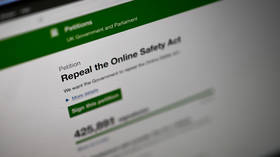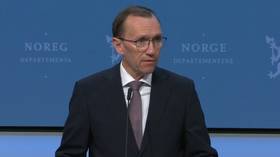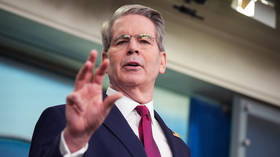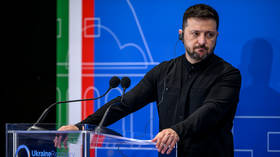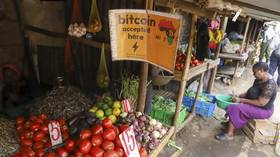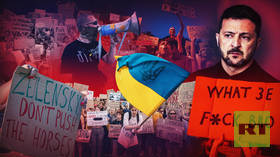The Fuller Picture - 2015 UK Elections: Voters abandoning parties or parties abandoning voters?
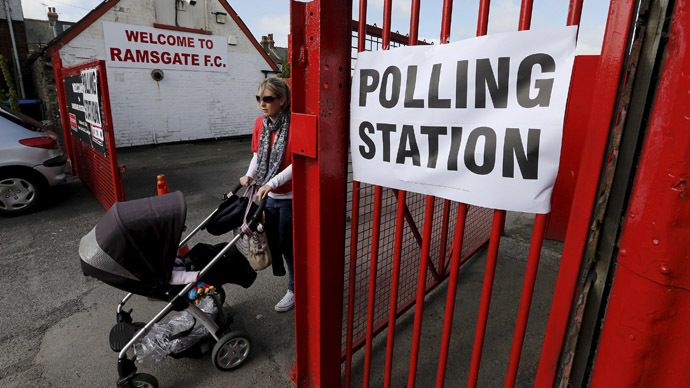
As the polls close in the United Kingdom's national elections, it's time to take a look at whether voting even really matters.
After years of speculation, months of squabbling and weeks of rallying and counter-rallying, British voters finally went to the polls today for the first national election in five years.
It’s been a tight race. Going into the polls, the two traditional big parties, Labour and Conservative, were neck and neck with about one third of the vote each. That means the UK will almost certainly end up with either another coalition government or a minority government. If so, it will be the second such compromise in a row in a country that has otherwise tended towards single-party majority cabinets.
But is it really a change and is it worth your while to even vote?
The British political landscape, long dominated by Conservatives and Labour, has begun to open up a little. We’ve seen more parties, like UKIP and the Scottish National Party (SNP), coming into play, and it’s not so much as the rise of the smaller party as the slow fade of the big ones that this is all about.
Labour leader Ed Miliband is currently reaping what his predecessor Tony Blair sowed when he sold everyone down the river with the idea of ‘New Labour’ in 1997. New Labour, which Margaret Thatcher would one day wittily name as her greatest achievement turned out to include jumping into a neocon planned war in Iraq, pushing through privatization of public infrastructure, introducing tuition fees for university students, reorganizing the NHS to run like a private company, and giving the Bank of England full operational independence vis-a-vis the nation’s finances.
The Conservatives, who had already abandoned their working-class voters in favor of multinational businesses and investment back in 1979, may have been a bit shocked by Tony’s new strategy, but instead of retreating back to the base, the Conservatives decided to stick with the big money of City finance.
In didn’t take people very long to realize they were getting screwed. Abandoned by the big two, many voters began to look for someone else, turning to parties like the SNP, Plaid Cymru, the Greens and the Lib Dems. These parties know exactly where they have to gain votes: during the televised leaders’ debate on April 2, they barely cast a second glance at David Cameron, before heading for Miliband like a pack of wolves. Whereas Nigel Farage, went right for David Cameron’s jugular, in a bid to scoop up lonely ex-Conservatives. For the up-and-comings, the election hasn’t been so much about attracting new, disenfranchised voters, as about gouging some flesh out of the two big players.
It certainly makes for more interesting television, but will it really change anything for you? And if you went to vote today, did it do you any good?

Comedian Russell Brand caused a storm in a teacup over the last few months by claiming that voting is an essentially useless activity.
And he’s basically right. Especially so in the UK, which uses the first-past-the-post system. British people, for reasons best known to themselves, voted to retain first-past-the-post in a 2011 referendum on the matter, and this is what they are about to get for their troubles at this election:
- Labour and Conservatives will probably each get about 50-60 more seats in Parliament than they deserve based on the vote
- the Scottish National Party (concentrated in a smaller geographical area as it is) will likely do even better, getting twice as many seats as it would be entitled to be based on vote percentages
- the Lib Dems, Greens and UKIP will all do far worse than polled. While they should account for nearly 30 percent of the vote between them, they probably won’t get much more than 30 seats (less than 5 percent) in Parliament, and the overwhelming majority of those will be Lib Dems, who themselves are only polling at around 8 percent
So, the figures seem to back up Mr. Brand, and if you voted for the Lib Dems, Greens or UKIP, you’re probably feeling that rather painfully right now.
Your vote counts,
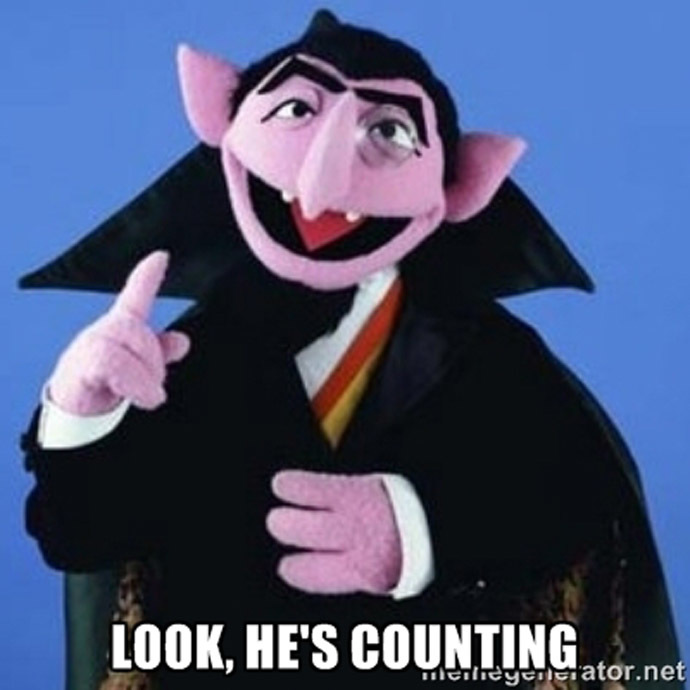
just not in any normal understanding of the word.
But Brand followed up the initial outrage over his vote-skeptic heresy when he made a slight detour from his position this week to call upon his English fans to vote Labour.
In doing so, he made it clear that this was a very half-hearted support, brought on only by the unthinkable prospect of Cameron winning a second term; kind of like being given a choice on which type of torture you would prefer: having your intestines wrapped around a stake or the Iron Maiden? I guess if you go with Iron Maiden, you can always hope to get something like this:
Elections here or there, the real point for Brand is the issue of participating between elections.
And there he has a point, too.
The average voter only puts a cross on a ballot paper about 12 times in their life before rigor mortis sets in. And in the meantime, what?
Yes, you can go and protest. Although what that will get you, besides a short, sharp shower from a water canon is a bit unclear. No one is under any obligation to listen to you protesting and some of Britain’s largest ‘protests’, the 2003 protests against the Iraq War or the 1984-5 miner’s strike haven’t led anywhere. Dare to riot, as Londoners did in 2011, or gear yourself up for a spot of ‘hacktivism’ and things will go even worse for you.
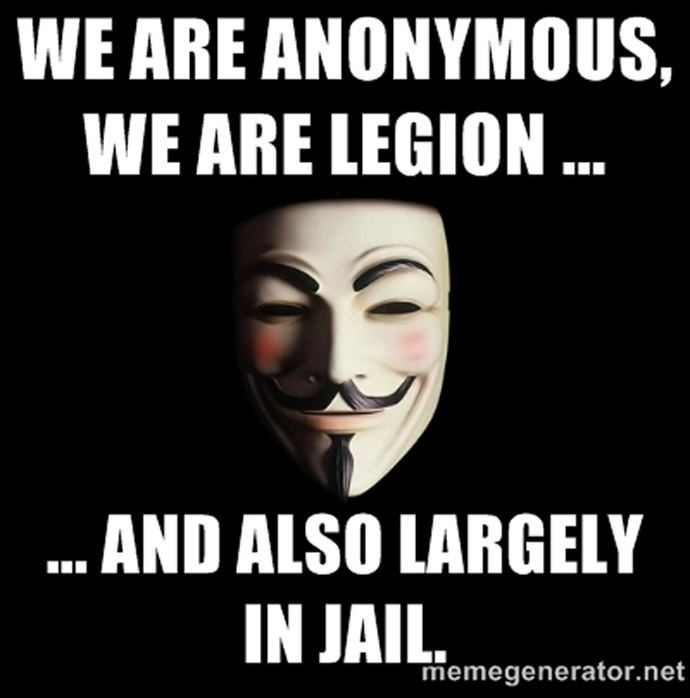
In fact, London’s Metropolitan Police has been trying to get organizations to pay for traffic measures and security at their protests, meaning that people would have to pay to protest. Although the force eventually backed down on these demands on two protests, it still insisted that “future marches would have to negotiate with police to secure their services.” Even a future of pre-emptive arrests and ‘kettling’ looks bleak.
The same could be said for petitions, including the online variety. Change.org is a for-profit company that sponsors ‘petitions’ in exchange for money. Politicians certainly aren’t under any obligation to listen to them, and for the most part they don’t. The UK government’s own online petition facility is so useless that the Committee charged with dealing with them complained to government that the e-petition website was giving citizens a misleadingly positive impression as to how useful submitting a petition was likely to be.
And you can tweet about the trending cause célèbre all you like, but unless you own a media company capable of 24/7 onslaught what that’s going to achieve is a bit unclear. The individual tweeter is no match for the media empire. In his interview with Russell Brand, Miliband was pretty tepid on this point, describing Australian owner of The Sun and BSkyB Rupert Murdoch as “no longer a force” in British politics, despite the fact that since 1983, Murdoch has been intimately involved with the campaign of every successful UK Prime Minister. Let’s put that in perspective. I was born in 1980. In 1983, I was cheerfully tobogganing around Canada in a custom-built sled pulled by one German shepherd and worshipping Red from Fraggle Rock.
Yes, I went all the way through primary school, all the way through high school, all the way through university, all the way through a PhD, learned German, lived in three different countries, visited about 50 of them, acquired Irish citizenship, and ONLY NOW will I apparently, for the first time in my life experience a UK election not controlled by Rupert Murdoch.
Functioning system?
I think not.
So if you’re in the UK, do take Russell Brand’s first advice and deliver us from evil…sorry…I mean, from David Cameron. But far more importantly, you should heed Russell’s second plea and start meaningfully participating between elections. There are plenty of ways to start doing that, including getting involved in direct democracy projects here or here, reading about what democracy really means here (shameless plug – coming in October) or indeed something a little more grassroots like getting yourself elected to a local council and championing the voices from below.
The statements, views and opinions expressed in this column are solely those of the author and do not necessarily represent those of RT.
The statements, views and opinions expressed in this column are solely those of the author and do not necessarily represent those of RT.




